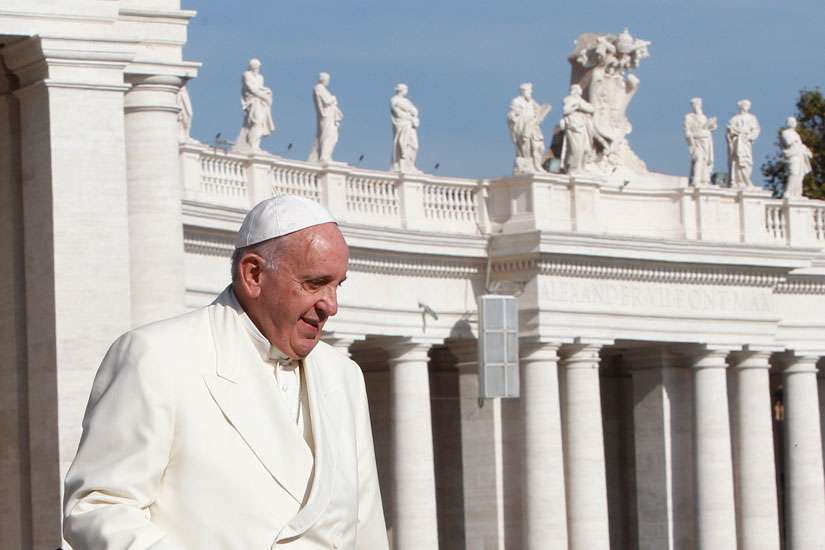The Jan. 17 visit falls on Italy's annual day for Christian-Jewish dialogue -- a day that has been observed for more than 20 years in Italy to reflect on relations between Catholics and Jews, and recall the Jewish roots of the Christian faith. A similar day of dialogue is also celebrated in Poland, Austria, the Netherlands and Switzerland.
Jan. 17 is also the date Rome's Jewish community commemorates "Lead Mo'ed" when a torrential rain in 1793 saved Jews from a Roman mob's attempt to attack them.
In 1793, anti-Jewish tensions ran high throughout the Papal States because Jews were being blamed for supporting new revolutionary ideas coming from France. A Roman mob descended on the city's Jewish ghetto, intent on burning down its gates and doing violence to its residents.
Authorities were unable to stop the rabble and feared the worst, but a sudden and tremendous downpour extinguished the mob's torches and scattered the crowd, saving the ghetto's inhabitants. The name "Lead Mo'ed" refers to the dark, leaden color of the Roman skies just before the rain began to fall.
Pope Francis has made interreligious dialogue and relations with Jews a priority in his pontificate following his longtime efforts as archbishop of Buenos Aires, Argentina.
Then-Cardinal Jorge Bergoglio co-authored a book, "On Heaven and Earth," with his friend, Argentine Rabbi Abraham Skorka. The collection of their frank conversations about themes of great concern to many people was meant to be a living example of what dialogue entailed and to show that religions "offer a valid alternative in facing life's problems," the rabbi had said in 2014. They also recorded 31 televised discussions about current topics of social and religious interest in Argentina.
"All we did was offer people the fruit of our relationship," the rabbi has said. "The Bible offers a clear, simple response to the concerns of our age," which Pope Francis continues "to show in his daily teachings" through his morning Mass homilies, general audience talks and Sunday Angelus addresses.


